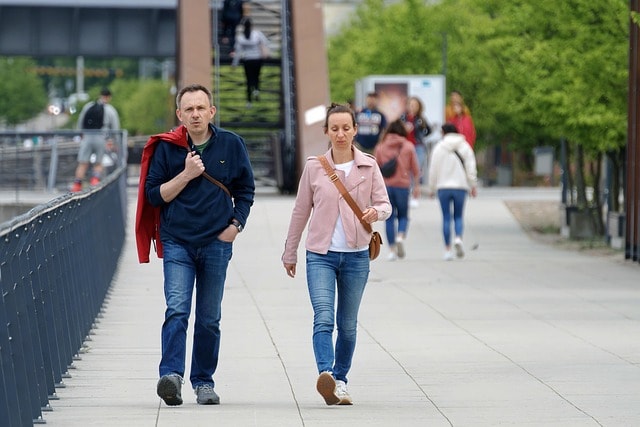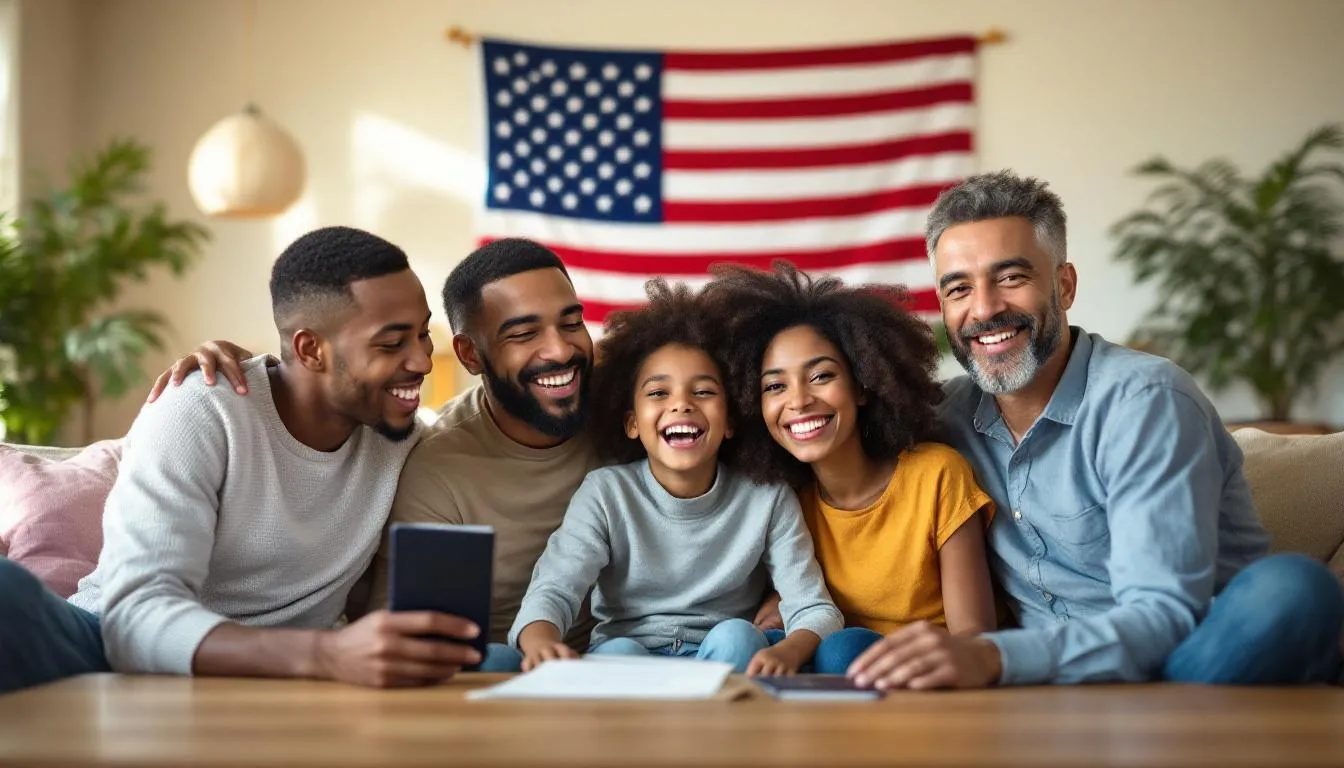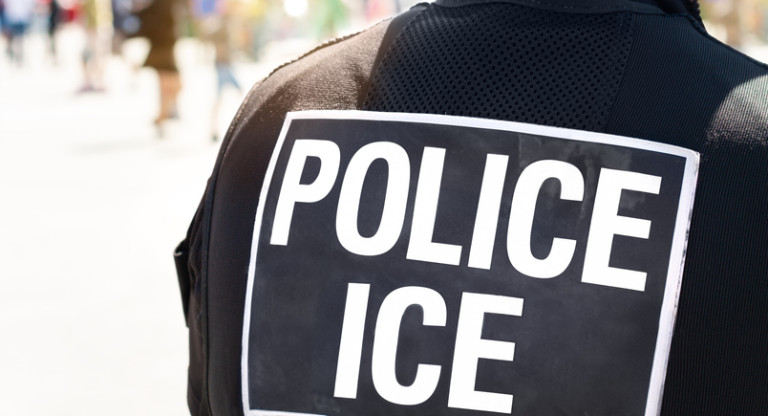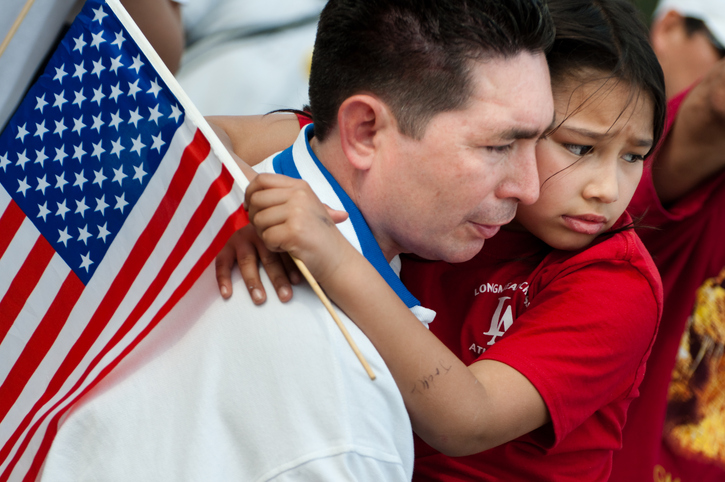Introduction
Marriage to a U.S. citizen after a visa overstay provides legitimate legal pathways to adjust status and obtain green cards, even for foreign nationals who have accrued significant unlawful presence. Under immigration law, immediate relatives of U.S. citizens receive special protections that can overcome most consequences of visa overstays, allowing eligible individuals to register permanent residence without leaving the United States.
The immigration process for overstay cases involving marriage to U.S. citizens offers more favorable outcomes than nearly any other immigration pathway, thanks to specific exceptions in federal immigration laws that prioritize family reunification.
What This Guide Covers
This comprehensive overview examines legal options for adjustment of status after visa overstays, federal requirements for marriage green cards, step-by-step procedures for the immigration process, and Ohio-specific considerations compared to national legal representation options. We do NOT cover criminal inadmissibility issues requiring specialized waivers or complex removal proceedings already in progress.

Who This Is For
This guide is designed for foreign nationals who have overstayed nonimmigrant visas and are married or engaged to U.S. citizens, their American spouses, family members navigating the immigration system, and legal representatives in Ohio and nationwide. Whether you’re facing an immediate visa overstay situation or planning long-term strategies for lawful permanent residency, you’ll find practical guidance for your specific circumstances.
Why This Matters
Understanding marriage-based adjustment options can mean the difference between deportation and permanent residence for many immigrants. The immediate relative status provides unique protections that can overcome unlawful presence bars, prevent removal proceedings, and secure immigration benefits that would otherwise be unavailable to visa overstayers.
What You’ll Learn:
- Legal pathways available for adjustment of status after visa overstays
- Step-by-step procedures for marriage green card applications
- Documentation requirements for proving bona fide marriage relationships
- Ohio immigration landscape compared to national legal representation options

Understanding Visa Overstay and Immigration Consequences
A visa overstay occurs when a foreign national remains in the United States beyond their authorized period of admission as indicated on Form I-94, automatically beginning to accrue unlawful presence that can trigger serious immigration consequences.
The distinction between visa expiration and I-94 expiration date is crucial – your lawful status ends when your I-94 expires, not necessarily when your visa stamp expires. Many immigrants mistakenly believe they maintain legal status as long as their visa remains valid, but immigration laws clearly establish that the I-94 controls your authorized stay period.
Unlawful presence begins accruing the day after your authorized stay expires, creating potential bars to future immigration benefits and reentry to the United States. Understanding these consequences is essential for developing effective strategies to adjust status through marriage to a U.S. citizen.
Types of Visa Overstays and Their Implications
Tourist visa (B-2) overstays represent the most common scenario, often involving individuals who entered for vacation or family visits but remained beyond their authorized stay. These cases typically have the clearest pathways to adjustment of status when marriage to a U.S. citizen occurs.
Student visa (F-1) overstays involve more complex status violations, as students can fall out of status through academic program failures, unauthorized employment, or failure to maintain full-time enrollment before their I-94 expires. Loss of status issues may require additional documentation but don’t necessarily prevent marriage-based adjustment.
Work visa overstays create unauthorized employment consequences that can complicate the adjustment process, though immediate relatives of U.S. citizens receive forgiveness for unauthorized work during the application process.
Immediate Consequences vs. Long-Term Immigration Impact
Accruing unlawful presence differs from triggering inadmissibility bars – the critical thresholds are 180 days (triggering a 3-year reentry ban) and 365 days (triggering a 10-year reentry ban) of unlawful presence before departing the United States.
However, immediate relatives of U.S. citizens who adjust status within the United States avoid triggering these reentry bans entirely, as they never depart the country during the adjustment process. This connects to the primary advantage of marriage-based adjustment – maintaining continuous presence while obtaining lawful permanent residence.
Transition: Understanding these overstay consequences demonstrates why marriage to a U.S. citizen provides such valuable legal protections for immigrants facing unlawful presence issues.

Marriage to US Citizen: Primary Legal Pathway After Overstay
Immediate relative status exempts spouses of U.S. citizens from unlawful presence bars during adjustment of status proceedings, making marriage the most effective legal pathway for overcoming visa overstay consequences.
Under INA Section 245(c) exceptions, foreign nationals who entered the United States with inspection and were lawfully admitted can adjust status despite accruing unlawful presence through overstaying their authorized period. This provision specifically protects immediate relatives of U.S. citizens from the harsh consequences that affect other visa categories.
The key requirement remains lawful admission and inspection at a port of entry – individuals who entered illegally cannot take advantage of these protections and must pursue consular processing with potential waiver applications.
Immediate Relative Advantages and Protections
No visa number limitations or priority dates affect spouse applications for immediate relatives, meaning U.S. citizens can petition for their foreign spouses without waiting years for visa availability that affects other family-based immigration categories. Additionally, the marriage-based green card category has no annual cap, making it a potentially faster immigration pathway.
Forgiveness of unlawful presence accrued before filing the adjustment of status application provides crucial protection for long-term overstayers. Once the application is filed, the individual gains protection from removal proceedings during the pending case. After approval, if the marriage lasted less than two years, the recipient will receive a conditional green card, requiring further action to remove conditions.
Building on these protections, immediate relatives also receive work authorization and advance parole benefits that allow legal employment and international travel while their green card applications process.
Bona Fide Marriage Requirements and Fraud Prevention
USCIS maintains strict standards for proving legitimate marriage relationships due to widespread concerns about fraudulent marriages entered for immigration purposes. The agency scrutinizes every aspect of the relationship to ensure couples entered into bona fide marriage for love and commitment, not to circumvent immigration laws.
Required documentation includes: joint financial accounts, lease agreements showing cohabitation, insurance policies listing both spouses, tax returns filed jointly or separately with spouse information, and affidavits from family members and friends attesting to the genuine relationship.
The interview process may include standard adjustment interviews or intensive Stokes interviews for cases where USCIS questions the marriage’s legitimacy. Couples must demonstrate detailed knowledge of each other’s backgrounds, daily routines, and future plans to satisfy fraud prevention requirements.
Transition: These marriage requirements lead directly into the specific procedures and documentation needed for successful adjustment of status applications.
Step-by-Step Adjustment of Status Process
The Form I-485 adjustment of status procedure allows eligible immediate relatives to obtain green cards without leaving the United States, while concurrent filing benefits enable work authorization and travel documents during processing.
Filing Requirements and Documentation
Form I-485 adjustment application requires current filing fees of $1,140 for most applicants, with additional biometric services fees of $85. Processing times vary by USCIS field office but typically range from 8-15 months for straightforward marriage cases. However, the process for obtaining a green card through marriage can take anywhere from 12 to 24 months, depending on various factors.
Form I-130 family-based petition filed by the U.S. citizen spouse establishes the qualifying family relationship and can be filed concurrently with the I-485 to streamline processing and provide work authorization benefits.
Form I-765 work authorization application allows the foreign spouse to obtain legal employment authorization while the green card application processes, providing crucial financial stability during the adjustment period.
Form I-131 advance parole provides international travel authorization, though travel should be carefully planned with experienced immigration attorney guidance to avoid complications or triggering unlawful presence bars.
Required supporting documents include:
- Certified marriage certificate from the jurisdiction where the marriage occurred
- Birth certificates for both spouses with certified English translations if needed
- Evidence of the U.S. citizen spouse’s citizenship (passport, birth certificate, or naturalization certificate)
- Financial support documentation (I-864 Affidavit of Support)
- Medical examination from USCIS-approved civil surgeon
- Police clearances from all countries where either spouse lived for six months or more since age 16
Medical Examination and Background Checks
USCIS-approved civil surgeon requirements mandate comprehensive medical examinations including vaccination records that meet current CDC requirements. The immigration process requires specific immunizations that may differ from routine medical care.
FBI background checks and biometric services appointments verify the applicant’s criminal history and identity through fingerprinting and photographs. Processing timelines depend on the complexity of background verification but typically add 2-4 weeks to overall case processing.
Unlike other immigration categories, immediate relatives benefit from more streamlined background processing that prioritizes family reunification over extended security reviews affecting employment-based cases.
Alternative Pathways: Consular Processing vs. Adjustment
Consular processing may be required when individuals entered without inspection, have certain criminal history issues, or fall under specific bars that prevent adjustment of status within the United States.
I-601A provisional waiver applications allow certain immediate relatives to apply for unlawful presence bar waivers before departing for consular processing, reducing family separation time but requiring proof of extreme hardship to the U.S. citizen spouse.
| Feature | Adjustment of Status | Consular Processing |
|---|---|---|
| Location | Remain in U.S. | Must travel to home country |
| Timeline | 8-15 months average | 6-12 months plus travel time |
| Work Authorization | Available during process | Not available until completion |
| Travel Risk | Minimal with advance parole | May trigger reentry bars |
| Legal Costs | $3,000-$7,000 typical | $4,000-$10,000 with waivers |
Building on this comparison, adjustment of status provides superior protection for eligible applicants who can remain with their families throughout the process.
Transition: Understanding these procedures helps identify potential challenges that may complicate otherwise straightforward adjustment cases.

Common Challenges and Legal Solutions
Foreign nationals seeking adjustment through marriage to U.S. citizens face several recurring obstacles that require specific legal strategies and documentation approaches to overcome successfully.
Challenge 1: Entry Without Inspection Issues
Solution: Consular processing with I-601A provisional waiver applications represents the primary pathway for individuals who crossed the border illegally but married U.S. citizens.
INA Section 245(i) grandfathering provisions protect certain applicants with qualifying family petitions filed before specific cutoff dates, though this relief affects relatively few current cases.
Challenge 2: Prior Immigration Violations and Criminal History
Solution: Comprehensive criminal inadmissibility analysis and potential waiver applications can address many past violations, though each case requires individual evaluation of eligibility requirements.
Previous deportation orders create additional complications requiring specialized legal strategies, while certain criminal convictions may require I-601 inadmissibility waivers that demand proof of extreme hardship to qualifying relatives.
Challenge 3: Employment Authorization Violations
Solution: Immediate relatives receive automatic forgiveness for unauthorized work violations during adjustment of status processing, providing crucial protection that other visa categories lack.
Documentation strategies should focus on current employment authorization through pending applications rather than attempting to justify past unauthorized work periods.
Transition: These challenges highlight the importance of experienced legal representation, particularly in Ohio’s unique immigration landscape.
Ohio Immigration Landscape and Legal Representation
Ohio’s diverse immigrant population and efficient USCIS field office processing create favorable conditions for marriage-based green card applications, with Cleveland and Cincinnati offices maintaining reasonable processing times compared to severely backlogged metropolitan areas.
Ohio vs. National Legal Representation Comparison
| Factor | Ohio Immigration Attorneys | National Immigration Firms |
|---|---|---|
| Average Legal Fees | $3,000-$6,000 for marriage cases | $5,000-$12,000 for similar cases |
| USCIS Office Familiarity | Extensive local experience | Limited local office knowledge |
| Processing Time Knowledge | Accurate current estimates | General national averages |
| Language Services | Strong bilingual capabilities | Variable language support |
| Success Rate Documentation | 95%+ for qualified cases | 90-95% reported rates |
Advantages of Ohio-based representation include intimate familiarity with Cleveland and Cincinnati USCIS field office procedures, interviewing officers’ preferences, and efficient case scheduling that often surpasses national average processing times.
Herman Legal Group’s specific expertise in marriage-based adjustment cases provides comprehensive understanding of overstay situations, having successfully represented hundreds of couples navigating complex immigration challenges throughout Ohio and neighboring states.
Ohio-Specific Considerations and Resources
USCIS field office locations in Cleveland (Anthony J. Celebrezze Federal Building) and Cincinnati serve different geographic regions with varying appointment availability and interview scheduling efficiency.
State-specific documentation requirements include Ohio marriage certificate procedures through county probate courts and certified translation services available through Ohio court-approved translators for necessary documents.
Local immigrant community resources provide valuable support networks, including the International Services Center in Columbus and Catholic Charities immigration services throughout major Ohio cities.
Transition: These Ohio advantages lead to specific questions that immigrants and their families frequently raise about the marriage-based adjustment process.
Frequently Asked Questions
Comprehensive answers to common concerns about marriage to U.S. citizens after overstaying address eligibility, timing, costs, documentation, and potential complications affecting adjustment of status applications. If your application for a marriage-based Green Card is denied, you may need to appeal or reapply with additional evidence.
Eligibility and Legal Process Questions
Q: Can I adjust status if I overstayed my tourist visa for several years? A: Yes, if you entered the United States legally with inspection and married a U.S. citizen in a bona fide marriage. Immediate relatives receive forgiveness for unlawful presence during the adjustment process, regardless of overstay duration.
Q: What happens if USCIS suspects marriage fraud? A: Marriage fraud investigations involve intensive interviews, document review, and potential site visits. Genuine relationships with proper documentation typically survive scrutiny, but fraudulent marriages face serious consequences including permanent immigration bars and criminal prosecution.
Q: Can I travel internationally while my adjustment application is pending? A: Only with advance parole authorization (Form I-131). Traveling without advance parole abandons your adjustment application and may trigger unlawful presence bars upon attempted reentry.
Q: How long does the marriage green card process take in Ohio? A: Cleveland and Cincinnati USCIS offices process most marriage-based adjustment cases in 10-14 months, faster than national averages in major metropolitan areas with significant backlogs.
Cost and Timeline Questions
Q: What are the total costs for adjusting status through marriage? A: USCIS filing fees total approximately $1,760, legal representation ranges $3,000-$6,000 in Ohio, medical examinations cost $200-$500, and document preparation adds $300-$800 for typical cases.
Q: Are payment plans available for legal fees? A: Many Ohio immigration attorneys, including Herman Legal Group, offer structured payment plans that allow clients to manage legal costs throughout the adjustment process rather than requiring full payment upfront.
Q: When can I apply for U.S. citizenship? A: Lawful permanent residents can apply for naturalization after maintaining continuous residence for 3 years while married to the same U.S. citizen spouse, or 5 years for other permanent residents.
Documentation and Evidence Questions
Q: What evidence proves a bona fide marriage? A: Joint bank accounts, lease agreements, insurance policies, tax returns, utility bills, photos together over time, wedding documentation, and affidavits from family members and friends who know the relationship.
Q: Do we need to prove we live together? A: Yes, USCIS expects married couples to share a residence unless circumstances like military deployment, work assignments, or family emergencies create temporary separations that must be documented and explained.
Q: Can same-sex marriages qualify for immigration benefits? A: Absolutely. Federal immigration laws recognize same-sex marriages performed in any U.S. jurisdiction where such marriages are legal, providing identical benefits to opposite-sex couples for adjustment purposes.
Transition: These frequently asked questions connect to comprehensive government and legal resources that provide additional detailed guidance for marriage-based adjustment cases.
Government and Legal Resource Directory
Comprehensive directory of verified government resources provides essential information for marriage-based green card applications, Ohio-specific procedures, and expert legal guidance throughout the adjustment of status process.
Federal Government Resources
USCIS Official Forms and Instructions:
- USCIS Green Card Through Marriage Information – Complete overview of marriage-based permanent residence
- Form I-485 Instructions and Current Fees – Adjustment of status application requirements
- Form I-130 Family-Based Petition Guide – Immediate relative petitions for spouses
- I-601A Provisional Waiver Information – Unlawful presence waiver applications
Department of State Consular Processing Resources:
- Immigrant Visa Process Overview – Alternative pathway when adjustment isn’t available
- National Visa Center Procedures – Document collection and case processing
- Embassy Interview Preparation Guidelines – International processing requirements
Immigration Court and Legal Information:
- Executive Office for Immigration Review – Removal proceedings and court information
- Legal Orientation Program Resources – Understanding immigration court procedures
- Pro Bono Legal Services Directory – Low-cost and free legal assistance options
Ohio State and Local Resources
Ohio Government Marriage and Document Services:
- Ohio Secretary of State Marriage Records – Obtaining certified marriage certificates
- Ohio Vital Statistics Office – Birth certificates and official document requests
- Ohio Court Approved Translators – Certified document translation services
Ohio Immigration Legal Aid and Community Resources:
- Legal Aid Society of Cleveland Immigration Services – Low-cost legal assistance
- Cincinnati Legal Aid Immigration Program – Community-based immigration support
- Ohio Immigrant Alliance Resources – Advocacy and community assistance programs
- International Services Center Columbus – Comprehensive immigrant family services
Herman Legal Group Expert Resources
Marriage Green Card and Adjustment Guidance:
- Herman Legal Group Marriage Green Card Guide – Comprehensive Ohio-focused guidance
- Visa Overstay Solutions and Legal Options – Specific strategies for overstay cases
- USCIS Interview Preparation Services – Professional interview coaching and preparation
- Ohio Immigration Attorney Consultation – Expert case evaluation and legal strategy
Specialized Immigration Services:
- Extreme Hardship Waiver Documentation – I-601 and I-601A waiver preparation
- Removal Proceedings Defense – Immigration court representation
- Family-Based Immigration Planning – Comprehensive family reunification strategies
Media Coverage and Economic Impact Studies
Authoritative Immigration News and Analysis:
- NPR Immigration Coverage – National immigration policy developments
- New York Times Immigration Section – Comprehensive immigration news analysis
- Wall Street Journal Immigration Reports – Economic impact of immigration policies
Research and Economic Studies:
- Congressional Budget Office Immigration Analysis – Economic impact of marriage-based immigration
- Migration Policy Institute Research – Family-based immigration trends and outcomes
- American Immigration Lawyers Association Updates – Professional legal guidance and policy changes
Transition: These comprehensive resources support the key takeaways that summarize the most critical information for successful marriage-based adjustment after visa overstays.
Key Takeaways
Marriage to a U.S. citizen provides the most reliable legal pathway for foreign nationals to overcome visa overstay consequences and obtain permanent residence, thanks to immediate relative protections that forgive unlawful presence during adjustment of status processing.
Critical timing considerations require immediate action for visa overstayers, as early consultation with experienced immigration attorneys can prevent complications, identify optimal strategies, and ensure proper documentation gathering before filing applications.
Ohio’s efficient USCIS processing and experienced local legal representation offer significant advantages over national firms, with Herman Legal Group’s specialized expertise in marriage-based adjustments providing comprehensive understanding of local procedures and successful case outcomes.
Bona fide marriage documentation requires extensive preparation to satisfy USCIS fraud prevention requirements, emphasizing the importance of genuine relationships supported by comprehensive evidence of shared life and commitment.
Long-term benefits extend beyond permanent residence to include pathways to U.S. citizenship, ability to petition for other family members, and complete protection from removal proceedings for qualifying immediate relatives.

Conclusion and Next Steps
Marriage to U.S. citizens provides legitimate, legally protected pathways to permanent residency for foreign nationals despite visa overstays, utilizing immediate relative exceptions that prioritize family reunification over immigration enforcement. The adjustment of status process offers superior protection compared to other immigration options, allowing couples to remain together while obtaining green cards through established federal procedures. Adjusting status to a Green Card holder is a discretionary benefit and must meet statutory requirements.
To get started immediately:
- Document your legal entry – Gather passport stamps, I-94 records, and original visa documentation proving lawful admission to the United States
- Compile marriage evidence – Collect financial records, lease agreements, insurance documents, and relationship proof for bona fide marriage documentation
- Schedule legal consultation – Contact Herman Legal Group for comprehensive case evaluation and strategic planning tailored to your specific overstay situation
Contact Herman Legal Group for expert guidance through Ohio’s efficient immigration landscape, leveraging local USCIS office familiarity and proven success in marriage-based adjustment cases throughout Ohio and neighboring states.
Related Topics: Naturalization procedures for new permanent residents, family reunification options for other relatives, and additional immigration benefits available to green card holders provide opportunities for continued family immigration planning.





